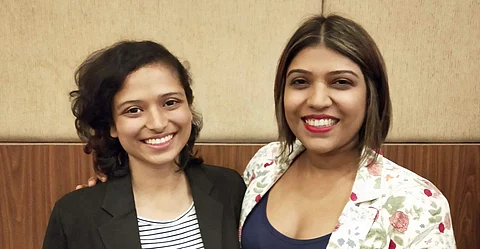

Sometime ago, we caught up with Saloni Mehta and Karen D'Mello, the founders of Tactopus, a start-up that provides online therapy to children with behavioural, motor, academic and speech delays or concerns. Like everyone, we were keen to hear stories of people around them and about how receptive they were to therapy online.
The founders recalled the story of a child with a developmental concern. "Her mother holds her therapy session in the bedroom while the rest of the extended family in the same house do not even know that they’re engaging in therapy. It is not something they claim that the family would approve of, owing to the stigma attached to disability," they say. In another instance, there is a four-year-old with ADHD (Attention Deficit Hyperactivity Disorder). While both his parents are doctors, Saloni and Karen say that they do not want to take their son to a local therapy center as they would have to deal with questions from society and they would rather not have people know of their son’s condition.
"Accepting a child with special needs comes with a culturally-assigned amount of shame. This causes families to choose to be comfortable living in ignorance or if they’re getting additional support for their child, they choose not to talk about it," they say. That is when Tactopus comes to play. "Each child is matched with a team of specialist partners based on various parameters, such as availability, language, specialisation and experience. This is followed by the creation of a customised growth plan wherein progress is tracked every month. This is accompanied by curated learning aids adapted to the digital delivery of sessions. Moreover, a custom growth plan is created for each child to bridge the gap between kids with observable delays and their peers. This enables them to integrate into mainstream society," says Saloni. The start-up is close to four years old now.
Saloni and Karen agree that a lot of parents, even today, do not know what to do when their child is diagnosed with a developmental issue. The inequality in the distribution of resources compels people to relocate to bigger cities where the limited experts are concentrated. Quite often, the stigma surrounding the label of disability discourages parents from seeking appropriate help. By providing therapy online, parents gain access to specialists from all over the country. Children can attend therapy from the comfort, privacy and safety of their home," they say.
Talking about how it came to be, she says, "Lack of accessibility is a major roadblock for families of children with delays, disorders or disabilities. I saw this first-hand when working on a Master’s project at Industrial Design Centre, IIT Bombay. Hoping to design tech that would help the education sector, I started working on an audio labelling tool for tactile graphics for children with blindness. Over the years, the scarcity of resources — both learning aids and trained teachers and therapists — was profoundly felt as no alternatives were available to these parents. That is how the idea of Tactopus came into being." While Saloni is an analytical user experience designer, Karen has 12 years of work experience in communication, brand, lead generation and stakeholder management. She also holds a master's degree in psychology.
